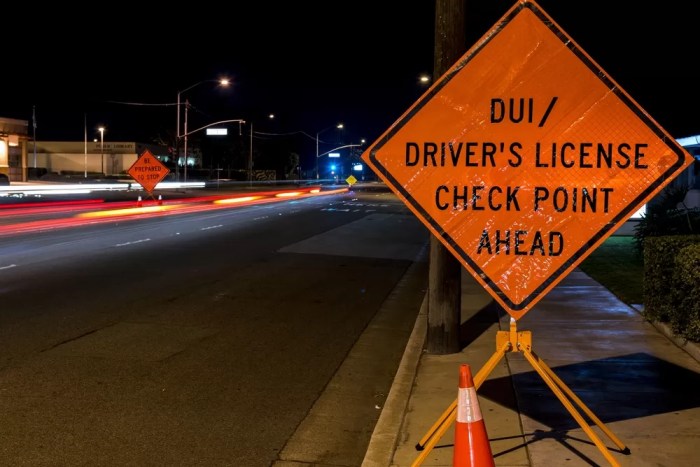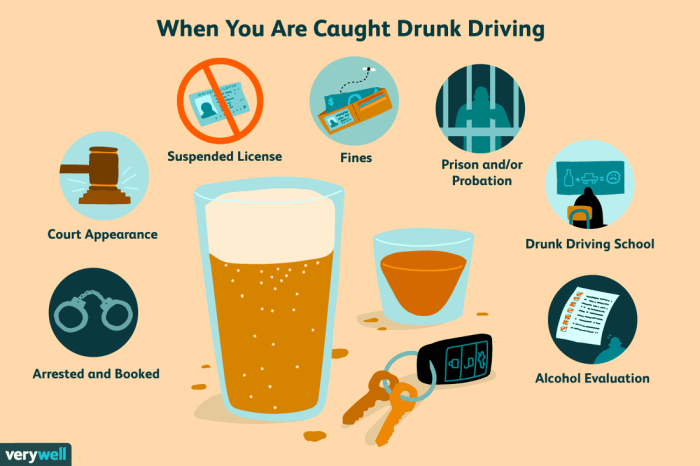Can you get a DUI if you blow under .08? This question delves into the intricacies of DUI laws, exploring the legal limits, factors contributing to charges, and potential defenses against them. Join us as we navigate the complexities of driving under the influence and its consequences.
Despite the common misconception that driving under the legal blood alcohol concentration (BAC) limit is safe, the possibility of receiving a DUI charge below .08 remains. This article will shed light on the nuances of DUI laws, examining the factors that can lead to charges despite a low BAC.
Legal Limits and DUI Laws: Can You Get A Dui If You Blow Under .08

In the United States, the legal blood alcohol concentration (BAC) limit for driving varies by state. Typically, a BAC of 0.08% or higher is considered intoxicated and can lead to a DUI charge. However, some states have lower BAC limits, such as 0.05%.
Driving under the influence (DUI) is a serious offense that can result in fines, jail time, and license suspension. DUI charges are based on a combination of factors, including BAC levels, driving behavior, and field sobriety tests.
Blowing Under .08 and DUI
It is possible to get a DUI even if you blow under the legal BAC limit. This can occur if you exhibit other signs of impairment, such as:
- Slurred speech
- Bloodshot eyes
- Poor coordination
- Difficulty following instructions
Additionally, certain medications or medical conditions can affect your driving abilities and lead to a DUI charge, even if your BAC is below 0.08%.
Impaired Driving and BAC Levels
BAC levels directly correlate with driving impairment. As BAC levels increase, driving abilities decline. This includes impaired judgment, slowed reaction times, and reduced coordination.
For example, at a BAC of 0.08%, a driver’s reaction time is approximately 20% slower than when sober. At a BAC of 0.10%, reaction time is 30% slower.
Field Sobriety Tests and DUI Arrests
Field sobriety tests are commonly used by law enforcement to assess impairment. These tests include:
- Horizontal gaze nystagmus (HGN) test
- Walk-and-turn test
- One-leg stand test
The results of field sobriety tests can be used as evidence in DUI cases to support the officer’s belief that the driver was impaired.
Other Factors Contributing to DUI Charges, Can you get a dui if you blow under .08
In addition to BAC levels, other factors can contribute to a DUI charge, including:
- Reckless driving
- Traffic violations
- Prior DUI convictions
These factors can increase the likelihood of a DUI charge, even if the driver’s BAC is below the legal limit.
Legal Defenses for DUI Charges
There are several common legal defenses used to challenge DUI charges, including:
- Insufficient evidence of impairment
- Unreliable field sobriety tests
- Medical conditions that mimic impairment
These defenses can be used to mitigate or dismiss DUI charges.
Expert Answers
Can you get a DUI even if you don’t drink alcohol?
Yes, it is possible to receive a DUI charge even without consuming alcohol. Certain medications, over-the-counter drugs, and even certain foods can impair driving abilities and lead to charges.
What are the penalties for a DUI conviction?
Penalties for DUI convictions vary depending on the jurisdiction and the severity of the offense. They can range from fines and license suspensions to jail time and mandatory treatment programs.
What are some common defenses against DUI charges?
Common defenses against DUI charges include challenging the accuracy of BAC tests, proving that the driver was not impaired, or arguing that the stop or arrest was unlawful.


